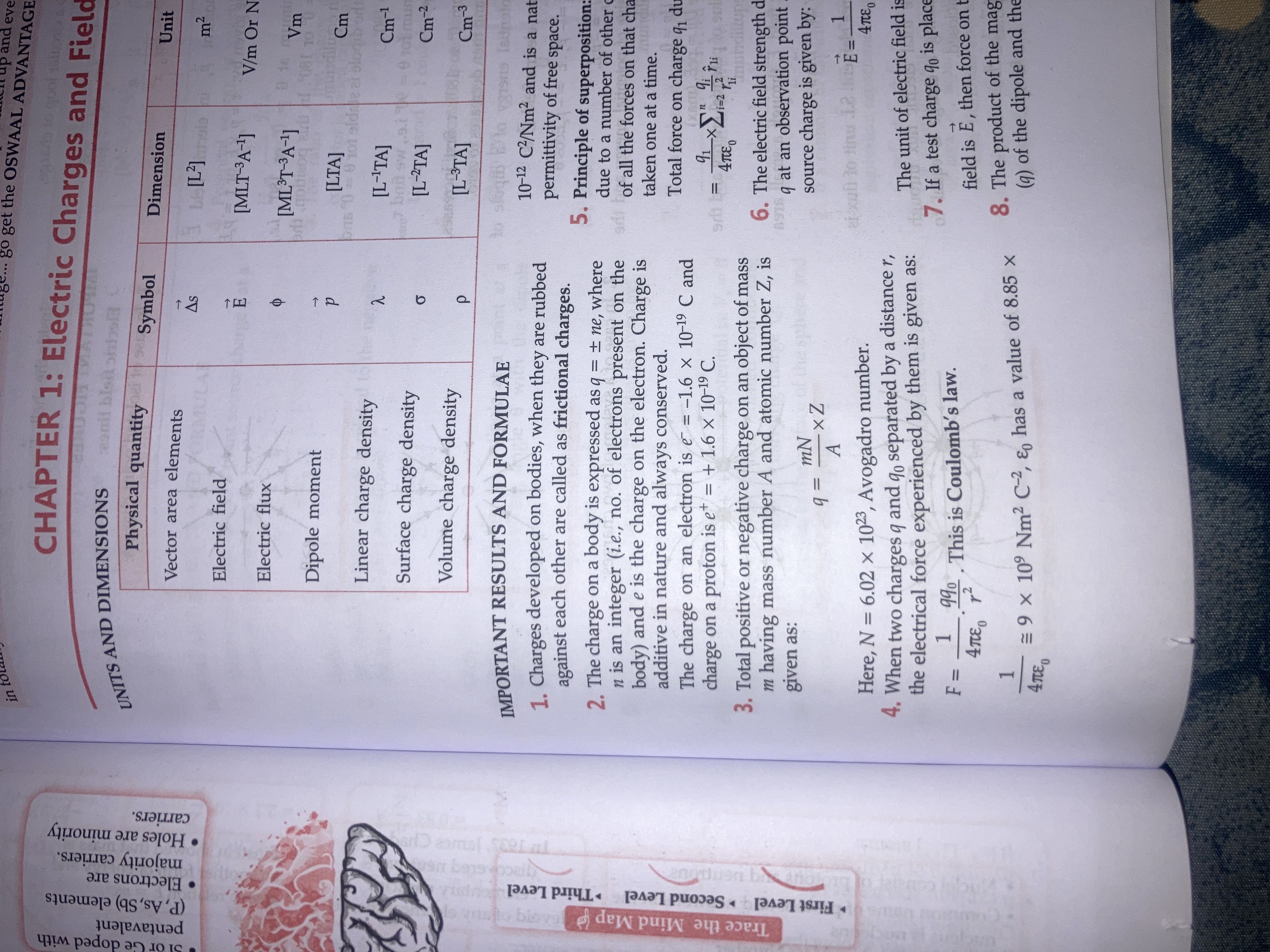Extract information about electric charges and fields from the provided text.

Understand the Problem
The image provides a summary of key concepts and formulas related to electric charges and fields, including definitions of physical quantities, important formulas, and principles such as Coulomb's law and the superposition principle.
Answer
Electric charges can be frictional, additive, and conserved. Electric field strength is given by E = (1 / 4πε₀) * (q / r^2), measured in V/m or N/C.
Electric charges: Charges can be frictional, additive, and conserved. The charge of an electron is -1.6 x 10^-19 C, and a proton is +1.6 x 10^-19 C. Electric field: The electric field strength due to charge q is E = (1 / 4πε₀) * (q / r^2). The unit of electric field is V/m or N/C.
Answer for screen readers
Electric charges: Charges can be frictional, additive, and conserved. The charge of an electron is -1.6 x 10^-19 C, and a proton is +1.6 x 10^-19 C. Electric field: The electric field strength due to charge q is E = (1 / 4πε₀) * (q / r^2). The unit of electric field is V/m or N/C.
More Information
The concept of electric charges and fields is fundamental to understanding electromagnetism.
Tips
Pay close attention to the units and dimensions of different quantities.
Sources
- CH1 Electric Charges and Fields | PDF - Scribd - scribd.com
- Electric Charge and Electric Field - Definition, Types, and Properties - geeksforgeeks.org
AI-generated content may contain errors. Please verify critical information